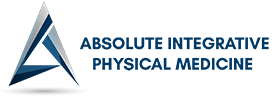What's Anterior Head Carriage And What It Can Do?
If your head is in a forward position from you neck, it's possible that you're suffering from Anterior Head Carriage (AHC). It can be easily spotted when you view it from someone's side angle when their ear is a bit forward from their shoulder. If the head is more forward, the stress exerted on their neck is far greater. This will cause the head to increase its weight by 10 pounds! So this means that if your head has an average weight of 12 pounds, three inches of AHC will make your head weight about 32 pounds. This is the reason why some people feel their head is getting heavy and are suffering from tightness around their neck and shoulders. It will also add some extra work on the neck muscles since it supports more weight than it should. Top Vacaville chiropractor Alex Tam explains.
If you're suffering from AHC, the following things can happen to you:
- Lose 30% of vital lung capacity.
- Add an average of 30 pounds of abnormal leverage on the cervical spine.
- Irritation on the large intestine which then causes a sluggish bowel movement.
Vacaville chiropractor explains how all of these clearly indicates that suffering from AHC can pave the way to all sorts of problems and symptoms including headache, migraine, fatigue, neck pain, shoulder pain, brain fog, low back pain, tingling in the hands and fingers, and tightness around the neck and shoulder muscles.
This problem can also make certain muscles become long and weakened. These muscles include:
- Erector spinae - These are the extensor muscles that are connected to the back of the upper thoracic spine and lower cervical spine. This muscle plays a vital role in straightening and rotating the spine. Once this muscle lengthens and loses its strength, it makes it less capable of preventing the neck and upper back from hunching forward.
- Deep cervical flexors - These muscles can be found along the front of the cervical spine where its key role is maintaining stability on the neck. Once it's weakened, the deep cervical flexors increase its length thus making the chin tilt away from the neck, sometimes called as "chin poking."
- Shoulder blade retractors - The rhomboid muscles and middle trapezius in the upper back are responsible in bringing the scapulae backward to keep the chest open and shoulders back in a good posture. If the trapezius and rhomboid muscles are weakened, it will cause the shoulder blades to tilt forward which will add more to your hunched shoulders and forward head posture.
If you want to relieve the pain and correct your AHC, these are the muscles that you need to strengthen first. There are also other muscles that requires strengthening to further reduce the head and rounded shoulder posture but that depends on the severity of the condition on the patient.
Anterior head carriage and muscle pain symptoms
There's no doubt that muscle pain can be felt when you're suffering from AHC. The pain that is felt can be described by the following:
- General soreness - The pain may be dull, and it can be felt all over the side or back of the neck and can even extend to the head, shoulder, and/or upper back.
- Intense pain - When a muscle becomes strained and goes into spasm, there will be some tightness and severe pain that comes with a sharp or burning sensation. The intense neck pain has a possibility of becoming worse through certain movements or positions but come sometimes alleviate when in correct postures or at rest. This pain is isolated in a single spot particularly on the base of the skull or the side of the neck instead of spreading all throughout.
- Muscle tightness - Some muscle groups can become tight or inflamed due to injury, overwork, trigger point pain, or triggered by nearby inflammation like in the case of a herniated disc. The pain and reduced muscle function will cause the neck to become stiff or less mobile.
- Trigger point pain - This type of pain can cause the taut, tender spots in the muscles to become more painful even with a slight of touch. Trigger point pains are normally felt along the back of the neck but may sometimes be referred up to the head or down in the shoulders. There are some studies which point out that trigger point pain is associated with AHC, especially for individuals who are experiencing migraines and other forms of headaches.
So if you are suffering from Anterior Head Carriage, it's best to avoid frequent massages. It doesn't mean that massages are bad but suffering from this kind of condition won't do you any good. It's best to have yourself consulted by a chiropractor in Vacaville first to receive some assessment on your situation and to find out which treatment should you do first. This will ensure that the problem is fixed before you can indulge yourself in body-soothing therapies.
OFFICE HOURS
Monday
8:30am - 1:00pm
2:00pm - 7:00pm
Tuesday
9:00am - 1:00pm
2:00pm - 7:00pm
Wednesday
8:30am - 1:00pm
2:00pm - 7:00pm
Thursday
9:00am - 1:00pm
2:00pm - 7:00pm
Friday
Closed
Saturday
Closed
Sunday
Closed
Absolute Integrative Physical Medicine
1490 Alamo Drive Suite B
Vacaville, CA 95687



